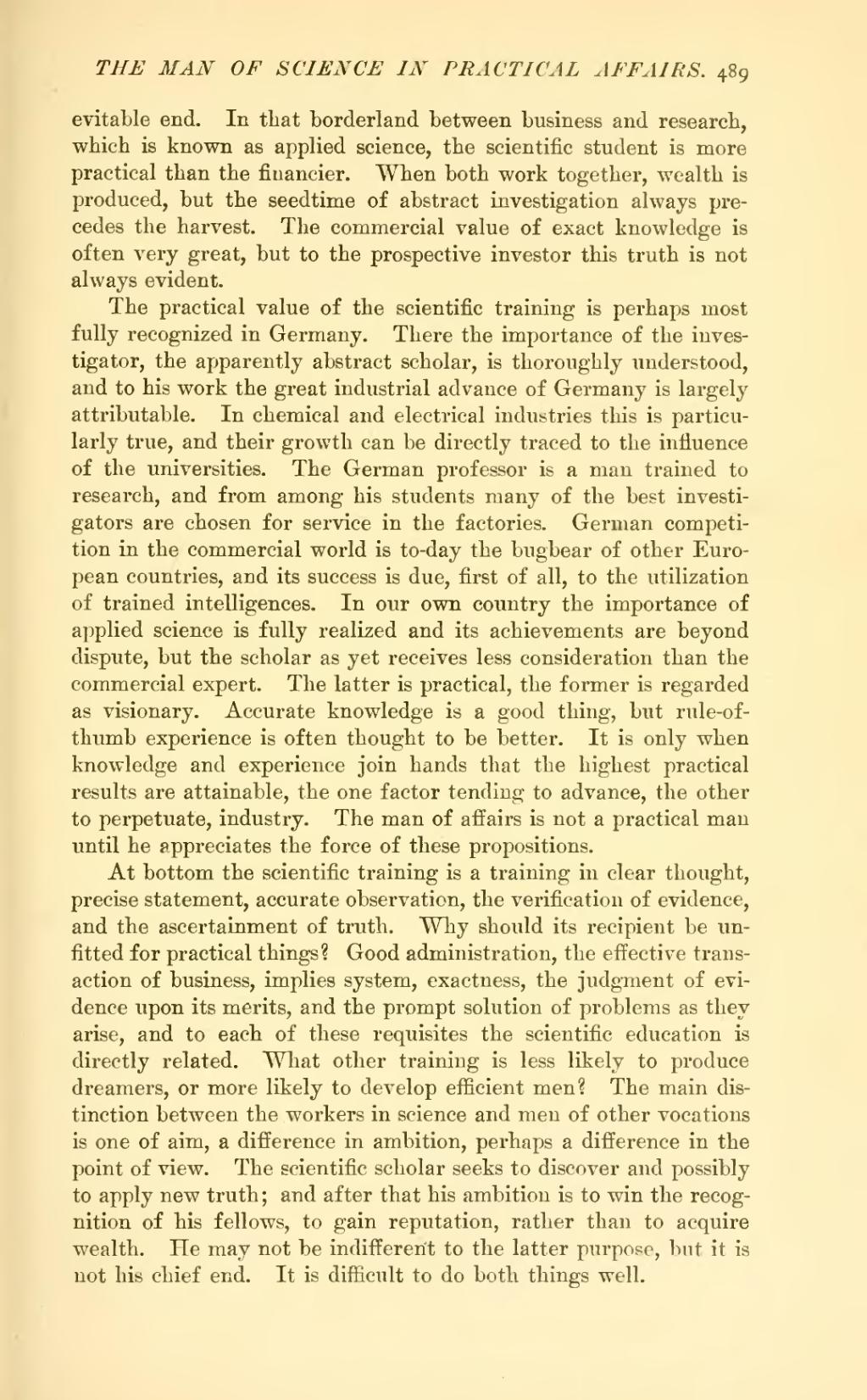evitable end. In that borderland between business and research, which is known as applied science, the scientific student is more practical than the financier. When both work together, wealth is produced, but the seedtime of abstract investigation always precedes the harvest. The commercial value of exact knowledge is often very great, but to the prospective investor this truth is not always evident.
The practical value of the scientific training is perhaps most fully recognized in Germany. There the importance of the investigator, the apparently abstract scholar, is thoroughly understood, and to his work the great industrial advance of Germany is largely attributable. In chemical and electrical industries this is particularly true, and their growth can be directly traced to the influence of the universities. The German professor is a man trained to research, and from among his students many of the best investigators are chosen for service in the factories. German competition in the commercial world is to-day the bugbear of other European countries, and its success is due, first of all, to the utilization of trained intelligences. In our own country the importance of applied science is fully realized and its achievements are beyond dispute, but the scholar as yet receives less consideration than the commercial expert. The latter is practical, the former is regarded as visionary. Accurate knowledge is a good thing, but rule-of-thumb experience is often thought to be better. It is only when knowledge and experience join hands that the highest practical results are attainable, the one factor tending to advance, the other to perpetuate, industry. The man of affairs is not a practical man until he appreciates the force of these propositions.
At bottom the scientific training is a training in clear thought, precise statement, accurate observation, the verification of evidence, and the ascertainment of truth. Why should its recipient be unfitted for practical things? Good administration, the effective transaction of business, implies system, exactness, the judgment of evidence upon its merits, and the prompt solution of problems as they arise, and to each of these requisites the scientific education is directly related. What other training is less likely to produce dreamers, or more likely to develop efficient men? The main distinction between the workers in science and men of other vocations is one of aim, a difference in ambition, perhaps a difference in the point of view. The scientific scholar seeks to discover and possibly to apply new truth; and after that his ambition is to win the recognition of his fellows, to gain reputation, rather than to acquire wealth. He may not be indifferent to the latter purpose, but it is not his chief end. It is difficult to do both things well.

